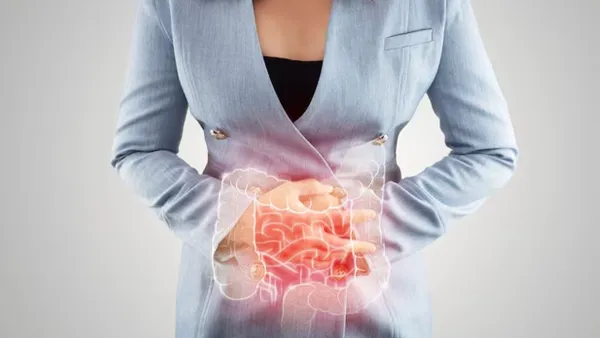It includes organs such as the oesophagus, stomach, and intestines and is responsible for breaking down food into nutrients and absorbing them into the bloodstream.
However, its size and complexity also make it vulnerable to a wide range of problems, from mild, manageable conditions to serious, life-threatening diseases. Among these are Irritable Bowel Syndrome (IBS) and colon cancer. While they differ in severity and treatment, their symptoms can overlap, sometimes leading to confusion and delayed diagnosis.
What Is Colon Cancer?

Colon cancer, also known as colorectal cancer, is a type of cancer that develops in the colon or rectum. "The first and longest segment of the big intestine is the colon," explainsDr Kiran Peddi, Senior Consultant Gastroenterologist, Director- Center For IBD, Yashoda Hospitals, Hyderabad.
It often begins as noncancerous polyps that can become cancerous over time. Colon cancer can spread to other parts of the body if left untreated.
What Is Irritable Bowel Syndrome?
Irritable Bowel Syndrome (IBS) is a common but long-term disorder of the digestive system characterised by abdominal pain and altered bowel habits, such as , constipation, or both.
It's considered a functional disorder, meaning there are no visible signs of damage or disease in the digestive tract, but the way it functions is disrupted.
Dr Peddi describes it as an intestine-related gastrointestinal disorder that is common yet painful. "IBS doesn't increase your risk of developing more severe illnesses like colon cancer or harm the tissue in the GI tract. Rather, it's a chronic (long-term) illness that most people can manage with medicine and lifestyle changes."
Understanding Overlapping Symptoms
While IBS and colon cancer are two entirely different conditions, symptoms may often overlap. These include:

- Abdominal pain
- Cramping
- Constipation
- Diarrhoea
- Changes in bowel movements
- Bloating
- Nausea
- Difficulty swallowing
How To Distinguish Between Colon Cancer And IBS
When distinguishing between IBS and colon cancer, key factors to consider include:
Age:Colon cancer is more prevalent in older adults, whereas IBS can occur at any age.
Symptom, duration, and progression: IBS symptoms often persist long-term without worsening, while colon cancer symptoms typically escalate over time.
Blood in stool: Though possible in both, it's far more concerning for colon cancer.
Mucus in stool:More frequently seen in IBS.
Weight loss: Unexplained weight loss raises greater suspicion for cancer.
Additional clues like family history, symptom patterns, and treatment responses can also aid in differentiation.
Treatment Options For Colon Cancer And IBS

According to Dr Peddi, colon cancer can be treated through surgery depending upon the stage, chemotherapy, radiation therapy, targeted therapy, and immunotherapy. "The treatment line often depends upon the stage of the cancer and patients' overall health," he says.
On the other hand, although no single therapy is effective for everyone, IBS treatment plans can be tailored to the individual's requirements. "Dietary and lifestyle changes are common treatment options," he adds.
Dietary changes for IBS:
- Increase your fibre intake by eating more fruits, vegetables, grains, and nuts.
- Supplemental fibre, such as Metamucil or Citrucel, can be added to the diet.
- Every day, drink eight ounces of water.
- Avoid caffeine from coffee, chocolate, teas, and sodas.
Because lactose intolerance is more common in people with IBS, Dr Peddi suggests limiting cheese and milk consumption is critical, and calcium should be obtained from other sources such as broccoli, spinach, salmon, or supplements.
Activity changes for IBS:
- Regular physical activity
- No smoking
- Eat smaller meals more frequently.
- Make a list of the foods that cause IBS flare-ups, such as red peppers, green onions, red wine, wheat, and cow's milk.
Conclusion
IBS and colon cancer are two conditions that may share similar symptoms, leading to confusion and delayed diagnosis. However, there are certain distinct characteristics that can help differentiate between the two. It is crucial to get proper tests and screenings to confirm your diagnosis. Speaking to a doctor can be the best way to learn about any underlying conditions.

 Colon cancer, also known as colorectal cancer, is a type of cancer that develops in the colon or rectum. "The first and longest segment of the big intestine is the colon," explainsDr Kiran Peddi, Senior Consultant Gastroenterologist, Director- Center For IBD, Yashoda Hospitals, Hyderabad.
It often begins as noncancerous polyps that can become cancerous over time. Colon cancer can spread to other parts of the body if left untreated.
What Is Irritable Bowel Syndrome?
Irritable Bowel Syndrome (IBS) is a common but long-term disorder of the digestive system characterised by abdominal pain and altered bowel habits, such as , constipation, or both.
It's considered a functional disorder, meaning there are no visible signs of damage or disease in the digestive tract, but the way it functions is disrupted.
Dr Peddi describes it as an intestine-related gastrointestinal disorder that is common yet painful. "IBS doesn't increase your risk of developing more severe illnesses like colon cancer or harm the tissue in the GI tract. Rather, it's a chronic (long-term) illness that most people can manage with medicine and lifestyle changes."
Understanding Overlapping Symptoms
While IBS and colon cancer are two entirely different conditions, symptoms may often overlap. These include:
Colon cancer, also known as colorectal cancer, is a type of cancer that develops in the colon or rectum. "The first and longest segment of the big intestine is the colon," explainsDr Kiran Peddi, Senior Consultant Gastroenterologist, Director- Center For IBD, Yashoda Hospitals, Hyderabad.
It often begins as noncancerous polyps that can become cancerous over time. Colon cancer can spread to other parts of the body if left untreated.
What Is Irritable Bowel Syndrome?
Irritable Bowel Syndrome (IBS) is a common but long-term disorder of the digestive system characterised by abdominal pain and altered bowel habits, such as , constipation, or both.
It's considered a functional disorder, meaning there are no visible signs of damage or disease in the digestive tract, but the way it functions is disrupted.
Dr Peddi describes it as an intestine-related gastrointestinal disorder that is common yet painful. "IBS doesn't increase your risk of developing more severe illnesses like colon cancer or harm the tissue in the GI tract. Rather, it's a chronic (long-term) illness that most people can manage with medicine and lifestyle changes."
Understanding Overlapping Symptoms
While IBS and colon cancer are two entirely different conditions, symptoms may often overlap. These include:

 According to Dr Peddi, colon cancer can be treated through surgery depending upon the stage, chemotherapy, radiation therapy, targeted therapy, and immunotherapy. "The treatment line often depends upon the stage of the cancer and patients' overall health," he says.
On the other hand, although no single therapy is effective for everyone, IBS treatment plans can be tailored to the individual's requirements. "Dietary and lifestyle changes are common treatment options," he adds.
Dietary changes for IBS:
According to Dr Peddi, colon cancer can be treated through surgery depending upon the stage, chemotherapy, radiation therapy, targeted therapy, and immunotherapy. "The treatment line often depends upon the stage of the cancer and patients' overall health," he says.
On the other hand, although no single therapy is effective for everyone, IBS treatment plans can be tailored to the individual's requirements. "Dietary and lifestyle changes are common treatment options," he adds.
Dietary changes for IBS: